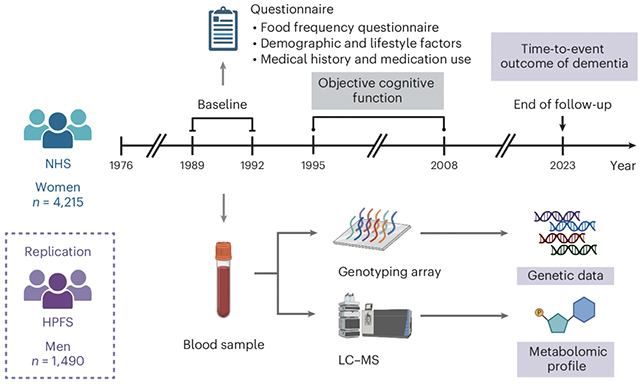Adhering to a Mediterranean diet has been found to reduce the risk of Alzheimer’s disease even among individuals who are genetically predisposed to developing the neurodegenerative condition, according to a study by researchers in the US.
Deriving its name from the region where it’s popular, the diet prioritizes fruit and vegetables, as well as olive oil, fish, nuts, and whole grains. Red meat, processed foods, and sweets are kept to a minimum.
While variations of the Mediterranean diet have been linked to reduced dementia risk before, a team led by researchers from the Harvard T.H. Chan School of Public Health found that it could be especially protective for people with two copies of the APOE4 gene variant, almost acting as a countermeasure.
Related: Vegetarian Diets Can Slash Cancer Risk by Up to 45%, Large Study Finds
“One reason we wanted to study the Mediterranean diet is because it is the only dietary pattern that has been causally linked to cognitive benefits in a randomized trial,” says epidemiologist Yuxi Liu, from the Harvard Chan School.
Alzheimer’s is a complex condition, with risk factors known to include sleep quality, diet, and mental health. There’s also a genetic element, because having one or two copies of the APOE gene significantly increases the chances of getting the disease.
The researchers investigated the Mediterranean diet in people with specific genetic backgrounds, while also analyzing blood metabolites: molecules that can act as indicators of how the body is functioning and processing food.

Data from 4,215 women (logged between 1989 to 2023) and 1,490 men (logged between 1993 and 2023) were analyzed, with cross-referencing done on dementia diagnoses, dietary habits, and genetic information.
Those that most closely followed the Mediterranean diet were least likely to show signs of cognitive decline or develop dementia, the researchers found – but the biggest difference was in the group at most risk, in terms of their genetics.
What’s more, the researchers found the Mediterranean diet regulated metabolites related to dementia, particularly in participants whose genes put them at high risk of Alzheimer’s. This could give us a greater understanding of how Alzheimer’s risk factors influence each other.
“These findings suggest that dietary strategies, specifically the Mediterranean diet, could help reduce the risk of cognitive decline and stave off dementia by broadly influencing key metabolic pathways,” says Liu.
“This recommendation applies broadly, but it may be even more important for individuals at a higher genetic risk, such as those carrying two copies of the APOE4 genetic variant.”
While the association is significant, the findings are based on well-educated individuals of European ancestry, and don’t show direct cause and effect, suggesting there may be unknown factors having an impact.
In addition, the metabolite markers were only measured once, so the researchers don’t have a full picture of how diet or the symptoms of dementia might have changed them over time.
In the future, metabolite markers might be used to evaluate dementia risk and to target specific biological pathways for treatment.
“In future research, we hope to explore whether targeting specific metabolites through diet or other interventions could provide a more personalized approach to reducing dementia risk,” says Liu.
The research has been published in Nature Medicine.
Source link
